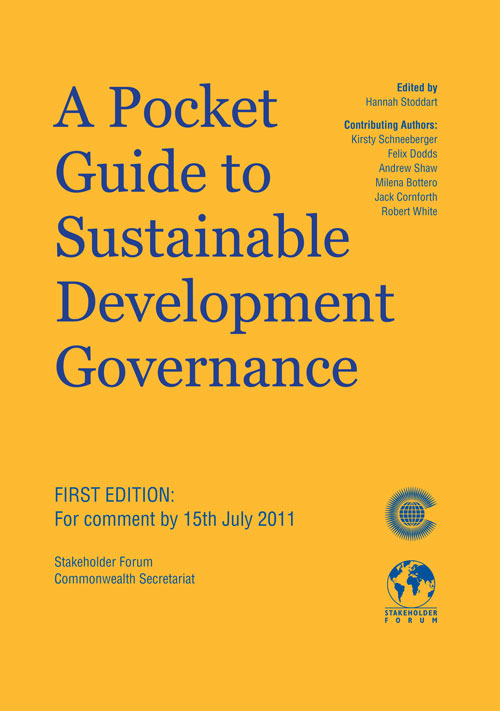UN ‘needs greater integration between science and policy’
A report by a top-level political panel has endorsed calls for greater integration of science into all levels of policymaking on sustainable development.
Scientists have already welcomed a significant number of references to the importance of science — including calls for better interchange between scientists and policymakers at the UN level — in the first draft of the outcome documentfor the UN Conference on Sustainable Development (Rio+20), which takes place in Brazil in June 2012.
Now, a report by the UN Secretary-General’s High-level Panel on Global Sustainability gives such calls a greater political weight, and provides guidance on some of the concrete steps that might achieve such objectives.
The report ‘Resilient People, Resilient Planet: A Future Worth Choosing’, which was published this week (30 January) makes 56 recommendations, with the importance of science being highlighted throughout.
In particular, it calls for “bold global efforts”, including the launch of “a major global scientific initiative”, to strengthen the interface between science and policy.
The report, which was drawn up by a panel whose members include ministers from Australia, Brazil, India and Sweden, says there is a “pressing need” for better integration between science and policy at all levels, and that UN decision-makers need better access to scientific expertise.
To achieve this, it calls for a science advisory board or a chief scientific advisor to the UN secretary-general, citing as examples the US President’s Council of Advisors on Science and Technology and the UK government’s chief scientific advisor.
The report warns that scientific enquiry has not yet provided a detailed understanding of human impacts on the environment, and that more research is needed to understand the compounding effects of various environmental, economic and social pressures.
It also complains of the lack of a “holistic picture” of where the planet is heading.
“We must define, through science, what scientists refer to as ‘planetary boundaries’, ‘environmental thresholds’ and ‘tipping points’. Priority should be given to challenges now facing the marine environment and the ‘blue economy’ [sustainable management of marine resources].”
The panel also recommends that disparate knowledge on a range of issues, such as climate change, development, energy, food and agriculture, health, and water, be brought together in a new global sustainable development outlook report.
An outlook report would integrate information and analysis, but also “prompt officials from a diverse range of international organisations to work together, compare their analyses and assumptions about the future, draw in outside experts — including the best available scientific advisors — and consult with governments”.
The recommendations have been welcomed by Stakeholder Forum, a civil society pressure group actively engaged in preparations for Rio+20.
“While the panel’s report is meant to be used beyond Rio+20, it should be read as a blueprint of what could be achieved in Rio and as a wake-up call for action,” the forum said in a press release.
Farooq Ullah, head of policy and advocacy at Stakeholder Forum, toldSciDev.Net: “Developing our understanding of the Earth’s boundaries and its overall health is vital to our sustainable future. It must also be supported by the creation of such institutions as an Intergovernmental Panel on Sustainable Development, and, by a chief scientific advisor to the UN’s secretary-general.”
The importance of science was also highlighted in a speech by Sha Zukang, secretary-general of the Rio+20 conference, at initial discussions on the Rio+20 draft outcome document that were held last week (25–27 January) in New York, United States.
Sha presented a list of “must have” outcomes from Rio+20, including a list of Sustainable Development Goals (SDGs) to succeed the Millennium Development Goals when they expire in 2015.
To achieve the SDGs a robust framework of action would be needed, he said, including mobilising finance; technology cooperation and transfer; capacity building; engaging all stakeholders in implementation, including through innovative partnerships; and putting science, education and innovation in the service of sustainable development.
Gisbert Glaser, senior advisor at the International Council for Science, toldSciDev.Net he was pleased with Sha’s speech.
He said at the discussions in New York last week, where he was representing Scientific and Technological Community, one of the ‘major groups’ involved in Rio+20: “Much stronger science and technology base will be fundamental for moving away from ‘business as usual’ in sustainable development. Rio+20 must chart a truly different course”.
Original article published at www.scidev.net


